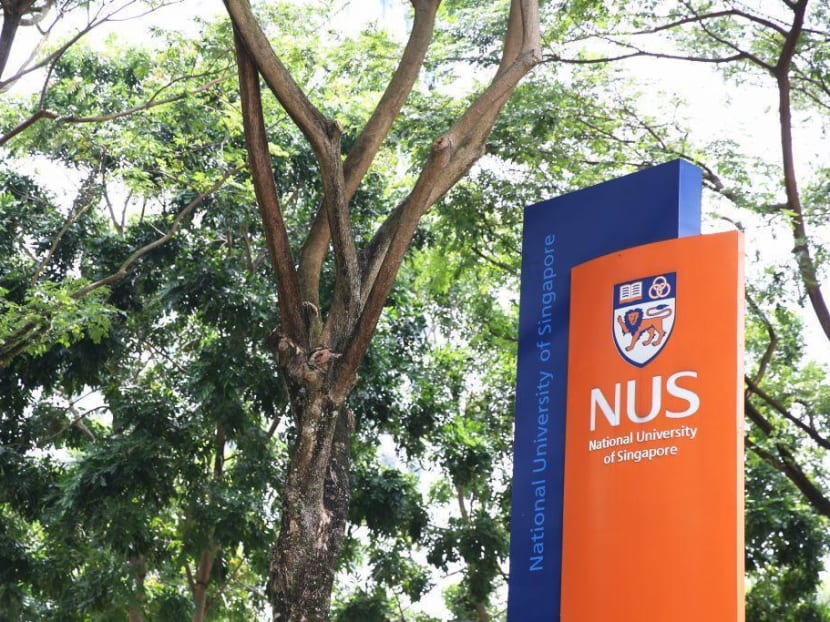NUS students question how proposed penalties will be rolled out; some want harsher punishment
SINGAPORE — Harsher proposed penalties for National University of Singapore (NUS) students who commit sexual offences drew pointed questions and mixed views from students on Wednesday (May 15).

While some students felt that the proposed penalties for sexual offences were not punitive enough, others said that they were a step in the right direction.
SINGAPORE — Harsher proposed penalties for National University of Singapore (NUS) students who commit sexual offences drew pointed questions and mixed views from students on Wednesday (May 15).
Some wondered if expulsion — proposed for severe offences — would be permanent, even as they questioned how severe offences would be defined.
And while some students felt the proposed penalties were not punitive enough, others said they were a step in the right direction.
Ms Monica Baey, the undergraduate who sparked off the nationwide discussion on the issue with her series of Instagram posts about her own ordeal as a victim of voyeurism, told TODAY: "I think it's a very good start", but added that more details on the proposals are needed.
In a note to NUS faculty, staff members and students on Wednesday morning, review committee chairperson Kay Kuok laid out several recommendations that would “toughen the penalties for sexual misconduct”.
Details are being worked out and there will be further consultations with students, alumni and experts, NUS said.
Read also
MORE QUESTIONS RAISED?
Among the questions raised by students in the meantime: Whether those who have been expelled may be re-admitted in the future.
Second-year communications and new media undergraduate Chea Rui Xuan, 20, said: “(The proposals) raised more questions than answers, really. What is deemed a severe offence? Where is the line?”
Second-year law undergraduate Ryan Leow, 21, said the alleged voyeurism case last Saturday showed that current sanctions lack the deterrent effect. It happened amid heightened awareness after the incident involving undergraduate Monica Baey, which led to the ongoing review.
“NUS needs to take an even tougher stance towards offenders, especially given the gravity of the harm caused to vulnerable victims,” Mr Leow said.
While the review committee proposed a minimum one-year suspension for sexual misconduct offences, Mr Leow said that all sexual offenders should be expelled.
Students also wanted more clarity on another proposed change, where offenders’ university transcripts would reflect their suspension. The notation will stay on the transcript for an unspecified period after graduation.
While offenders can be rehabilitated, Ms Chng Hui Ru, 21, said that they should also be made to take responsibility for their actions.
“I don’t think a permanent record will ruin their lives, but if the notation just disappears after a while, it wouldn’t serve as a deterrence for potential offenders,” the second-year literature student added.
Many students had taken issue with how undergraduate Nicholas Lim was able to work at insurance firm Great Eastern while being suspended from NUS for illegally filming Ms Baey showering at the hostel in November last year.
Final-year undergraduate Cordelia Lee, 23, noted that some employers do not ask for transcripts. If the goal is to prevent the offender from benefitting during the suspension, the offender could be made to do community service during that period instead, she suggested.
Read also
‘KEEP DIGNITY INTACT’
NUS dean of students Peter Pang on Wednesday also emailed students, encouraging them to participate in an online feedback survey and engagement sessions that will be held over the next two weeks.
After the consultations, the review committee will publish its final report by the middle of June.
Commenting on the developments, gender equality advocacy group Aware said that changes to the disciplinary framework must ensure “the dignity of all involved remains intact”.
Offenders must “fully grasp the gravity and consequences of their actions” and punishment should be meted out “fairly, judiciously, empathetically and in an overall trustworthy manner”.
Ms Shailey Hingorani, head of research and advocacy at Aware, said: “Engagement with students is of utmost importance here, as they are the ones putting their trust in the institution to protect them."
The review committee should also recommend ways to hold the university accountable for follow-up and oversight of its recommendations, she added.
Proposed penalties aside, undergraduate Daryl Yang, 25, said that there should be a stronger reporting process so that victims of sexual offences feel “safe and supported in bringing their perpetrators to justice”.
“Far too many cases of sexual offences are left unreported,” the final-year law and liberal arts student said.
The review committee proposed a care unit for victims of sexual offences that will provide support until special care is no longer needed.
Ms Hingorani said that counsellors in the unit must be well-trained to know how to “act expediently and empathetically to support survivors”.








